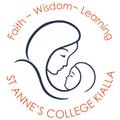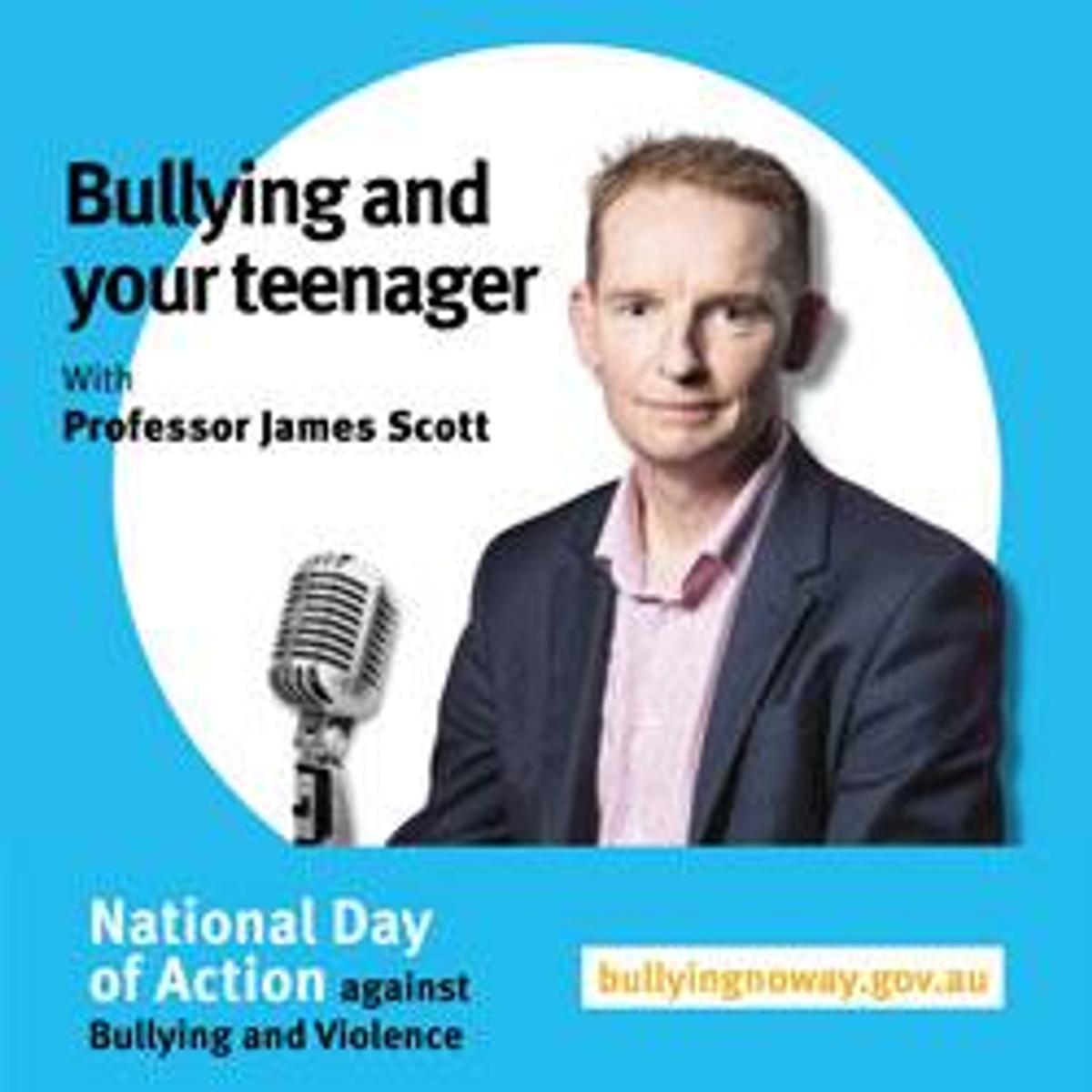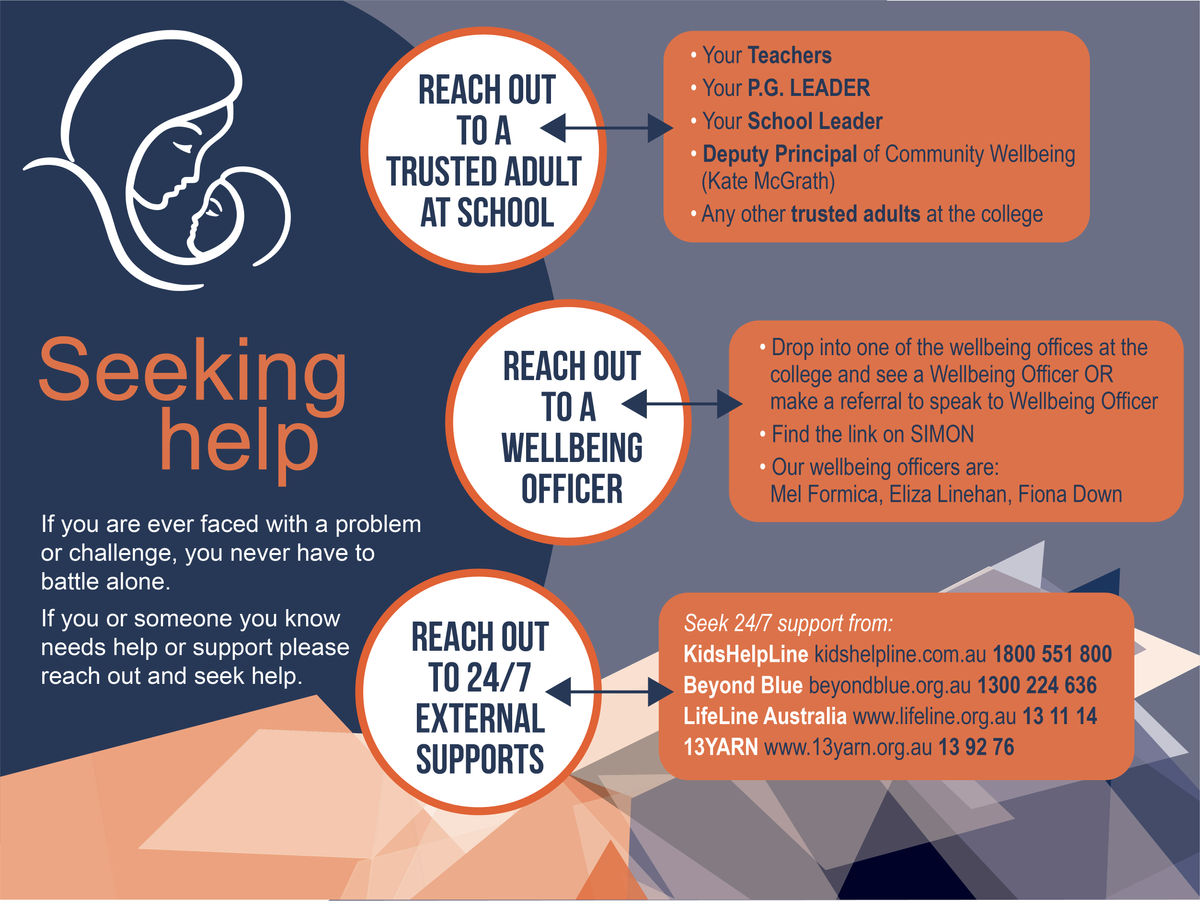Community Wellbeing

The National Week of Action Against Bullying and Violence is a significant event that unites schools and communities Australia-wide in a collective effort to raise awareness about the impacts of bullying and violence. With the theme “everyone belongs”, the week provides an additional opportunity to promote positive relationships, encourage respectful behaviour and empower our children to take a stand against bullying.
At St Anne’s College we are dedicated to creating a safe and inclusive environment for all students. The students are regularly taught about respectful relationships and the impacts of their action through our Resilience, Rights and Respectful Relationships Program, The Resilience Project, and Religious Education Curriculum as well as the explicit teaching of our College expectations: respect everyone and everything; always do your best and; help others succeed.
In light of the National Week of Action Against Bullying and Violence, throughout August we are having a particular focus on bullying prevention and intervention. The students will engage in various age-appropriate activities and sessions focusing on understanding bullying, its consequences, and how to stand up against it as well as encouraging students to commit to being kind, respectful, and supportive of their peers will be the focus.
How can you get involved?
We believe the fight against bullying and violence extends beyond the school walls and into our homes and communities. Here are some ways you can support this important initiative:
- Talk to your child: have open conversations about bullying, its effects, and the importance of kindness and empathy.
- Be a role model: demonstrate respectful and compassionate behaviour in your interactions.
- Stay informed: educate yourself about the signs of bullying and how to address it. Resources are available on our school website and from organisations dedicated to bullying prevention.
Appropriate responses to assist your child with bullying
If your child expresses they are being treated unkindly, they are being bullied or you suspect they may be being bullied, the Victorian Department of Education and Bullying No Way recommends taking the following steps to best support your child.
- Learn what bullying is and what it is not: understanding the definition of bullying is the first step in talking about how to prevent and respond to bullying with your child. 'Bullying' is a word that is used for behaviours that are not actually bullying. These other behaviours can be just as serious but may require different responses.
- Stay calm and positive: it can be upsetting when your child is being bullied. Remaining calm will enable your child to feel comfortable to open up. Let your child know you care and are here to listen. Focus on identifying a solution with your child. A confident, positive, and resilient appearance can stop bullying from continuing.
- Talk with the school: respectfully reach out to your child’s Pastoral Group teachers, School Leaders or Deputy Principal. A consistent and co-operative approach by both the home and school is important. Understandably, children who are being bullied are often fearful and worry that any action will worsen the problem. The solution is to make a parental decision to talk to the school. Schools will work with you to resolve the situation and will also work with the other student's parents. Due to privacy laws, the school will not be able to share information about any other students involved.
- Talk with your child: encourage your child to talk about what happened. If they want to try to deal with the bullying themselves, discuss these strategies and set a short period of time to see if they can resolve the situation. Tell your child reporting the bullying is okay. Assure your child it is not their fault. Encourage your child to:
- try to act unimpressed or unaffected.
- use other strategies to diffuse the situation (e.g. agreeing in an offhand way with the bullying when they say offensive or negative things - this is known as fogging).
- say 'No!' firmly.
- talk to the teacher or another staff member, e.g. the College Wellbeing Officer
- act confidently even when they don't feel it.
Give them the Kids Helpline telephone number 1800 551 800 to use if they ask to talk to someone other than the school, or you don't feel able to support them.
Say no to fighting
Do not advise your child to fight with the other child. Fighting (as distinct from defending themselves from a physical attack) with the other child can escalate the situation and your child may be reprimanded for their part in a fight.
Seek help for your child
Seek help for your child to recover from and understand the bullying incidents and give them the chance to improve their social skills. A child who has been bullied can be at greater risk than others of being bullied again (even when the bullying has been dealt with). Knowing how to deal with bullying and difficult people not just at school but throughout life in social situations and at work is a basic life survival skill.
PODCAST: Bullying and your teenager
Listen via: https://soundcloud.com/dete-4/bullying-and-your-teenager
This podcast with Professor James Scott, a clinical child and youth psychiatrist, and the head of the Child and Youth Research Group at the QIMR Berghofer Medical Research Institute in Queensland, discusses the signs your teenager may be experiencing bullying, how to start the conversation with them and how you can approach the school to resolve the issues.
Other supports:
https://www.vic.gov.au/my-child-being-bullied
https://kidshelpline.com.au/parents/issues/bullying-school
https://www.esafety.gov.au/parents
Attendance
Going to school every day is the single most important part of your child’s education. Students learn new things at school every day. Attending and participating in school will help your child develop academically, socially, and emotionally.
Research consistently shows students who attend school regularly are more likely to achieve academic success, develop important social skills and build a strong foundation for their future. By attending school every day, students have the opportunity to engage with their peers, participate in classroom discussions, and benefit from the guidance and support of our dedicated teachers. Regular attendance plays a significant role in establishing positive habits and routines that are essential for academic growth and personal development. When students miss school, they not only miss out on valuable learning opportunities but also risk falling behind in their studies and building social connections with peers. Any day/period missed, is associated with falling behind in subject topics and assessment tasks. Continuous absence may impact on achievement as students progress through years of schooling and particularly impact achievement in Years 11 and 12 and post-school pathways.
As partners in your child's education, we urge you to prioritise regular school attendance and ensure your child is present in school every day. There are no safe numbers of days for missing school! You can help your child have success in the following ways:
Family holidays: where possible, plan family holidays during the term breaks rather than during the term. If you are planning to go on holiday during term time, make sure you talk to the school in advance.
Build healthy habits: helping your child have a healthy sleep routine by setting bedtimes and limiting technology use and access of a nighttime.
Model positive behaviour: help your child be organise through setting routines ensuring bags are packed, uniforms are prepared and devices are charged the night before to assist in being on time.
Appointments: where possible, making medical/health appointments outside of school hours.
It’s never too late to improve attendance. Even in the middle years, when school can seem the most challenging for students and when attendance rates can be at their lowest, going to school more often can make a big difference. Every day counts.
We are here to help – if you’re having attendance issues with your child, we ask you to contact your child’s Pastoral Group or School Leader so we can work in partnership to address issues or concerns your child may have which may impact on their ability to attend school.
IN VIC, SCHOOL IS COMPULSORY FOR YOUNG PEOPLE AGED 6-17 YEARS
A reasonable excuse to be absent from school includes:
- Illness /Injury
- Bereavement
- Religious event
You are legally required to ensure your child attends school every day or you must provide an explanation for their absence. Where possible, it is best to let the College know in advance of any upcoming absences. You must contact the College in the morning if your child will be absent from school, or if they will be late or picked up early. You can do this through calling the College office on 4812 2993 or log your child’s absence using PAM.
In order for schools to implement the same day notification requirement, it’s essential you provide the school with your most up-to-date contact details.
A reminder the school day commences at 8:55am and concludes at 3:15pm.
BEING ABSENT FROM SCHOOL FOR 1 DAY PER FORTNIGHT EQUALS MISSING 1.5 YEARS OVER 13 YEARS OF SCHOOL.
Resilience Rights and Respectful Relationships (RRRR)
The RRRR Program is a program taught in government and Catholic schools and many independent schools from Prep to Year 10. Respectful Relationships focuses on treating everyone with respect and dignity. It is taught as part of the Personal and Social Capability and Health and Physical Education areas of the Victorian Curriculum.
The supporting RRRR Program teaching and learning materials have been developed by world-leading experts from the University of Melbourne. These age-appropriate resources align to the Victorian Curriculum and include lesson plans and activities that help students learn and practise social skills, develop emotional literacy and self-management skills and apply them in a positive way to learning, life and relationships.
The RRRR resources cover eight topics foreach level.
- Emotional Literacy
- Personal Strengths
- Positive Coping
- Problem Solving
- Stress Management
- Help Seeking
- Gender and Identity
- Positive Gender Relationships.
In The School of Wonder, the RRRR resources are embedded throughout the weekly learning program. In School of Innovation, the student will commence their health curriculum in semester 2 where the RRRR resources will be embedded into health sessions. Across the College, the delivery of the TRP curriculum runs in conjunction with Rights, Resilience andRespectful Relationships (RRRR) resource as a part of our holistic College approach to wellbeing.
Meet the Wellbeing Team
Click here to view an information sheet on St Anne's College's Wellbeing Team.
Child Safety
St Anne's College is committed to the safety of all children. Click here to view a Victorian Government factsheet on mandatory reporting to child protection.
The Resilience Project
Click here to view a helpful information sheet on The Resilience Project.
You can also learn more about The Resilience Project and get involved from home with exploring ideas, activities and resources by scanning the QR code.
And check out TRP@HOME; a place filled with inspiration and activities for the whole family, to help improve your wellbeing and build resilience.
Gratitude:
Working on gratitude helps us to be thankful and appreciate what we have in our lives, rather than focusing on what we don’t have or what we want. When we practise being grateful, we start to scan the world to look for positives – this only takes 21 days! Practising gratitude every day increases our levels of energy, and helps us to feel happier and more focused, determined, and optimistic. It even helps us have better sleep, lowers levels of anxiety and depression and we are less likely to get sick. So many benefits – let’s all try to be grateful for the things and people in our lives every day!
Family Habit Builder:
Every night at dinner, have each person talk about their favourite thing about that day.
Resources
Click hereto view a helpful information sheet with parent and student resources to assist with student health and wellbeing.







